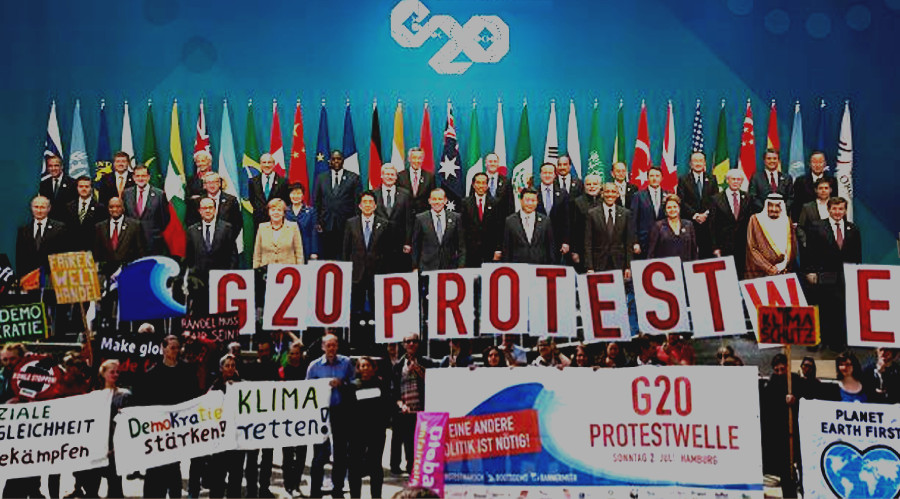|
Do not go on bended knee to G20! Rob Davies, former South African trade minister However, Davies said that he did not expect the G20 to be a driver of a radical paradigm shift. He said, I don’t think we should be ‘on bended knee’ in trying to hope that (US) Vice-President Vance - because Trump is not coming - would be persuaded if we take out this and that [from the text]. There are three words that the US does not want, and they will not agree to any text that includes them [namely, solidarity, equality and sustainability - which is the theme chosen by South Africa for its Presidency of G20 summit]. He added that the US was of the view that there was too much on the G20 agenda. The US wanted to reduce the scope to ‘core functions’, which was “the management of finance in the interests of Wall Street”. Davies said he would be remiss in not mentioning that a paradigm shift was greatly needed. Africans should take a strong stand in shaping the multilateral system, amidst the current uncertainty with the upending of the multilateral trading system. Dutifully following what Daniella Gabor termed the move from the “Washington Consensus” to the “Wall Street Consensus” will not be suitable, he emphasized. Davies said that Africa faces the prospect of the construction of a new system that shared [benefits] between one, two or three global powers. In a stark warning on the prospects of protecting current production and capabilities, he said that if opportunities were not seized, there was the possibility that Africa could actually regress. He warned, paraphrasing Mark Twain, that ‘the death of the multilateral system was greatly exaggerated’. On South Africa, he said that under the guise of structural reform we will simply get private capital involved in network industries, at questionable cost, because per private capital prerequisites included an acceptable rate of profit, and needed de-risking, which placed much of the fiscal burden on the state. South Africa had been under austerity for at least six years and unemployment was higher now than during the COVID pandemic. Half of all women lived under the upper bound poverty line, aside from being the most unequal society in the world today, he added Lebohang Pheko director of the Trade Collective (South Africa) said that sub-Saharan African debt had tripled from 2010 to USD 1,1 trillion today. Eight countries are in debt distress, and thirteen are at high risk of distress. The Common Framework (for Debt Treatments) of the G20 for unsustainable debt needed to be improved because it was characterised by high costs and restructurings in Africa take too long. Regional development banks were reluctant to take losses because that would result in lowering of their credit ratings. If this was the case in debt distress countries then what ought to be their developmental role? Pheko asked. Additionally, credit ratings agencies had biases on Africa, and oft ratings were weaponised. Dr Mikatekiso Kubayi, Senior Researcher at the Institute of Global Dialogue (IGD) outlined the various streams of work in the G20 task forces and provided a procedural update. He highlighted that the number of task forces had been reduced. Ali Zafar of the United Nations Development Program (UNPD) said the world faced unprecedented turmoil and chaos. Africa had opportunities to shape institutions, including a) its demographic power (one third of the world’s youth in 2050 would be in Africa), b) natural resources, and c) human capital. He said there was a consensus now that the multilateral trading system does not benefit Africans. Having travelled half the continent, Zafar said that he was witnessing a subtle shift in views, and that there was a breakdown of old fiefdoms. An emerging consensus was emerging on debt, official development assistance (ODA) and climate change, which was not the case ten years ago. An African voice must be forged, he urged. Zafar said that debt was an existential threat to Africa. In particular the distribution of debt was a concern (different country creditors) and the heterogenous nature of creditors indicates a lack of mutual trust (in debt restructuring or relief). Furthermore he was of the view that the metrics on debt were understated, with many countries insolvent. When your debt to GDP ratio was 117% (like in Senegal) then a country needed debt reduction or cancelation. The problem must not be left to future generations. Africa must not be seen as a place to make money but to foster development. Reform of the G20 Common Framework and the IMF debt sustainability processes was needed. Zafar said it was important to ringfence social spending as opposed to prioritising debt repayments. The International Monetary Fund (IMF) has started to show a little understanding of this. Interventions to deal with debt crises which amount to “all shock and no therapy” will not work. There was the rise of alternate finance such as the BRICS and from Asia. On the increased role of Public-Private Partnerships (PPPs), Zafar said, Africa needed to become better at negotiations to ensure that they benefited from their resources and spending. He said that risks should be shared equitably between the public and private sector. A focus on industrial policy, moving up the value chains in production, selective capital controls and renegotiating debt was important for Africans at the G20. Suad Aden-Osman of the Coalition on Dialogue for Africa (an African Union related institution) said that South Africa was the only African country represented at the G20, which raised questions about intra-African consultation and how South Africa articulates African interests at these fora. Aden-Osman said that ninety three percent of all African Union funding comes from the European Union and suggested greater attention on this aspect. Also internal decision making at the AU also needed consideration. Citing the example of former President Mbeki of South Africa, she said he was excluded from the High-Level Panel on Illicit Finance of the AU based on the decision of one person [only] at the AU. Expecting a paradigm shift from the G20 is a hard ask. We would be lucky to get an agreed text and are more likely to get a Chair’s text, Aden Osman said. During the interactive session, Hameeda Deedat said climate change was an important issue, current discussions promoted green colonialism. Davies replied that action on climate change was urgent. Africa would be affected at twice the global average and there were no resources for adaptation (to the new climate equilibrium). On debt he added that if we do not greatly increase exports in Africa, then the debt was unsustainable. Africa, he said, with a combined GDP of about USD 3 trillion [USD2,8 trillion IMF 2024]. The African Continental Free Trade Agreement (AfCFTA) needed to be worked on as the multilateral trading system was waning. Regional development should be emphasised. (with additional reporting by Hameeda Deedat) https://theconversation.com/former-ministers-memoir-is-a-candid-critique-of-south-africas-political-economy-160723 Back |
 Links |
||||||
|
|||||||



